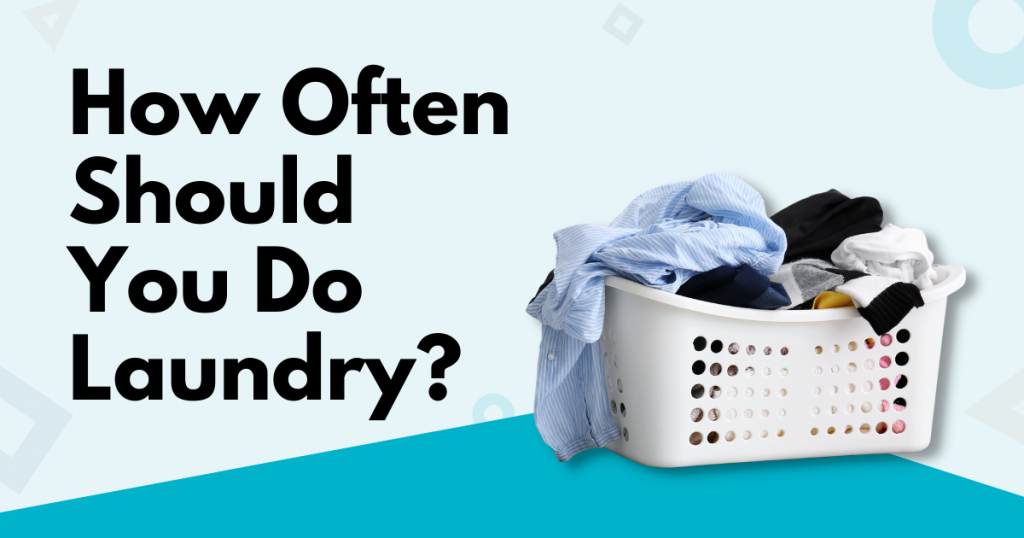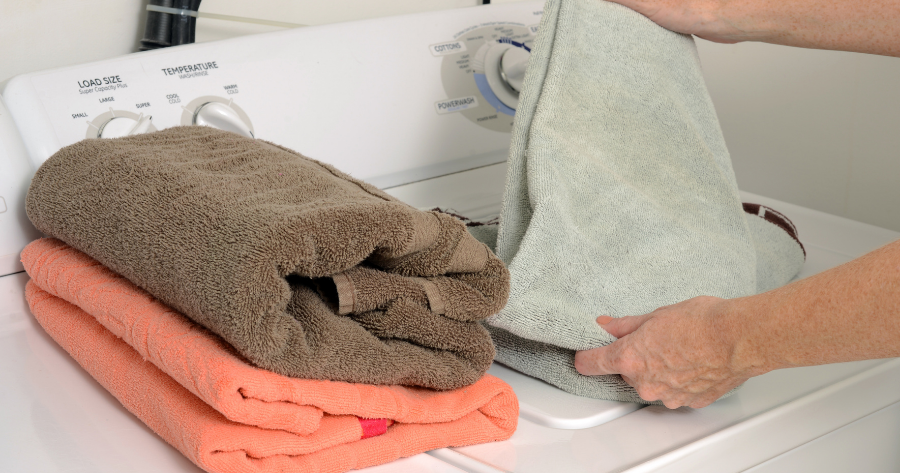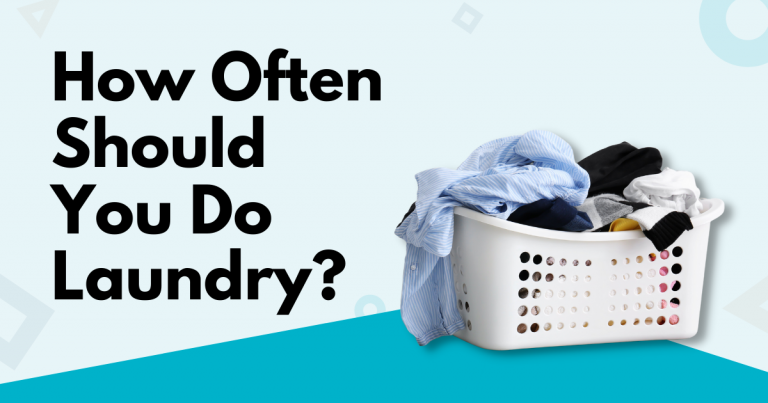
Are you guilty of reusing your worn clothes a lot more times than you should? I get it, the weather can be cold, and you’ve done the sniff test. The clothes seem fine. But seriously, when should you wash your clothes after being worn multiple times?
Some garments should be washed frequently. But certain items can go longer between washes. Doing the laundry less frequently is an environmentally friendly move. If you are wondering if you are washing clothes, towels, and bed sheets often, check out our guide below.
How Often Should You Wash Your Clothes
It all depends on how you wear the garment, the fabric type, and even the current season.
Cleaning your clothing regularly is important to keep them looking clean and fresh. Yet, sometimes you are just running errands and don’t want to grab a clean pair of jeans. So you wore an already used one. Don’t worry, it is okay to use a garment you’ve used a couple of times without washing.
You can get a few wears of some garments and wait a bit before they join the load of laundry. Doing so may actually extend the longevity of your garments from the possible shrinking and color fading by doing a machine wash less frequently.
You can also opt to wash in full loads instead of doing the laundry a few times each week. Try to apply this the next time you do the laundry. It will save you time and energy.
We prepared a table to help you determine if you are washing your clothes more often or less than you should:
| Type of Clothing | Frequency before washing |
| Underwear and socks | after every usage |
| Anything white or silk | after every wear |
| Hosiery | after every wear |
| Swimsuits | after every wear |
| T shirts, tanks, and camisoles | after every wear |
| Shapewear | after 1 to 3 wears |
| Tops and Dresses | after 1 to 3 wears; formal dress should be dry-cleaned after every wear |
| Leggings and Yoga pants | after 1 to 3 wears |
| Shorts and Khakis | after 2 to 3 wears |
| Sweaters: cotton, silk and cashmere | after 2 wears |
| Bras | after 3 to 4 wears |
| Pajamas | after 3 to 4 wears |
| Jeans | after 4 to 5 wears |
| Sweaters: wool and synthetic blends | after 5 wears |
| Dress, Pants and Skirts | after 5 to 7 wears |
| Jackets and Blazers | after 5 to 6 wears |
| Fleece Jackets and Sweatshirts | after 6 to 7 wears |
| Leather and Suede Jackets | once a season |
| Wool Coats | 1 to 2 times a season |
| Down Parkas and Vests | 2 times a season |
| Hats, Gloves, and Scarves | 3 to 5 times a season |
Depending on How You Wear Them
As a general rule of thumb, you should wash clothes depending on how you use them. Items that need frequent washing are those that cling close to the skin and are worn all day. It includes panties, briefs, boxers, socks, workout clothes, and sportswear.
It’s no rocket science that these articles of clothing should be tossed with the rest of the laundry after use. Since they are worn and rub directly on the skin, all the clods also cling onto them. It is on top of all the sweat and grime gym clothes go through after an exercise. Word of caution, you should separate sweaty clothing from the rest of the laundry. It’s best to hang them dry first if you can’t wash them immediately.
Bras are an exception to this rule. These undergarments use delicate fabrics and elastics. You can get away with washing them after you’ve used them three to four times. It’s also best to hand wash your bra and wash them less often. Machine washing can cause bras to tangle during washes.
It’s advisable to wash whites and silks after one wear. These items are prone to discoloration brought by sweat stains. Don’t reuse your white clothes and silks if you don’t want to don yellowish clothing.
Depending on the Fabric Type
According to a study published in the Applied and Environmental Microbiology journal, polyester fabric stench more than other fabrics. Certain bacteria that produce a strong, stinky smell do thrive on synthetic fabrics. Thus, it is advisable to throw polyester clothing in the laundry after wearing them once.
Meanwhile, thick fabrics, such as your favorite pair of jeans, can be worn a few times. You should wash jeans after four to five wears. Raw denim can color fade after a few washes. Thus, it is best to wash jeans with cold water to avoid discoloration.
Depending on the Weather
If the cold wind is blowing outside, you can get by wearing outerwear a couple of times. These include jackets, blazers, fleece jackets, and vests. Remember that you have to treat stained clothing even in between washes. Meanwhile, you can wear your pajamas up to four times during the cooler months.
How Often Should You Wash Your Towels

Are you guilty of washing your towels a lot less than you should? Towels are used to wick water away from the body, so they are always damp. Damp clothing is the favorite breeding ground for bacteria and mildew. Thus, these items need frequent washes.
- Face towels or tea towels need to be washed every after use. These types of towels are used directly on the face. Towels are known to gather bacteria when they are damp. Thus, you risk reintroducing dirt on your face if you reuse them.
- You can clean hand towels less often than face towels. You can use a hand towel for two to three days before washing them. You can run your hand towels in the washing machine more frequently than other clothing articles. It’s because you use them to dry hands that are not always clean.
- You can wash bath towels less often. You can use a single towel for about a week before tossing them with the rest of the laundry. Always remember to hang dry your bath towels after use to prevent the growth of mildew. Wash towels together in one full load to prevent their lint from sticking onto other clothing as they tumble in the dryer.
How Often Should You Wash Your Bed Sheets

It’s advisable to wash beddings and other linens at least once every two weeks. Your bed sheets may seem clean, but it gathers dead skin cells while you sleep. Bed sheets need to be washed regularly if you want to prevent bed bugs from biting.
If you have a sick household member, it’s best to wash their bed sheets and pillowcases every day to prevent the spread of the disease. Beddings used by a sick household member should also be washed with hot water to destroy any germs and viruses. You can also use the hottest temperature in the dryer to make sure you get rid of them completely.
In Conclusion
The recommendations presented above are great for both the environment and for your clothing. It minimizes the number of times you wash your clothes in the washing machine. However, there need to be some adjustments in your washing frequency. With the onset of the flu season and the threat of COVID 19, it’s vital to stay away from germs and viruses. With this, you have to say hi to laundry day more often than usual. You can check out this guide on how you could safely do your laundry during the pandemic.
Want to share this?

